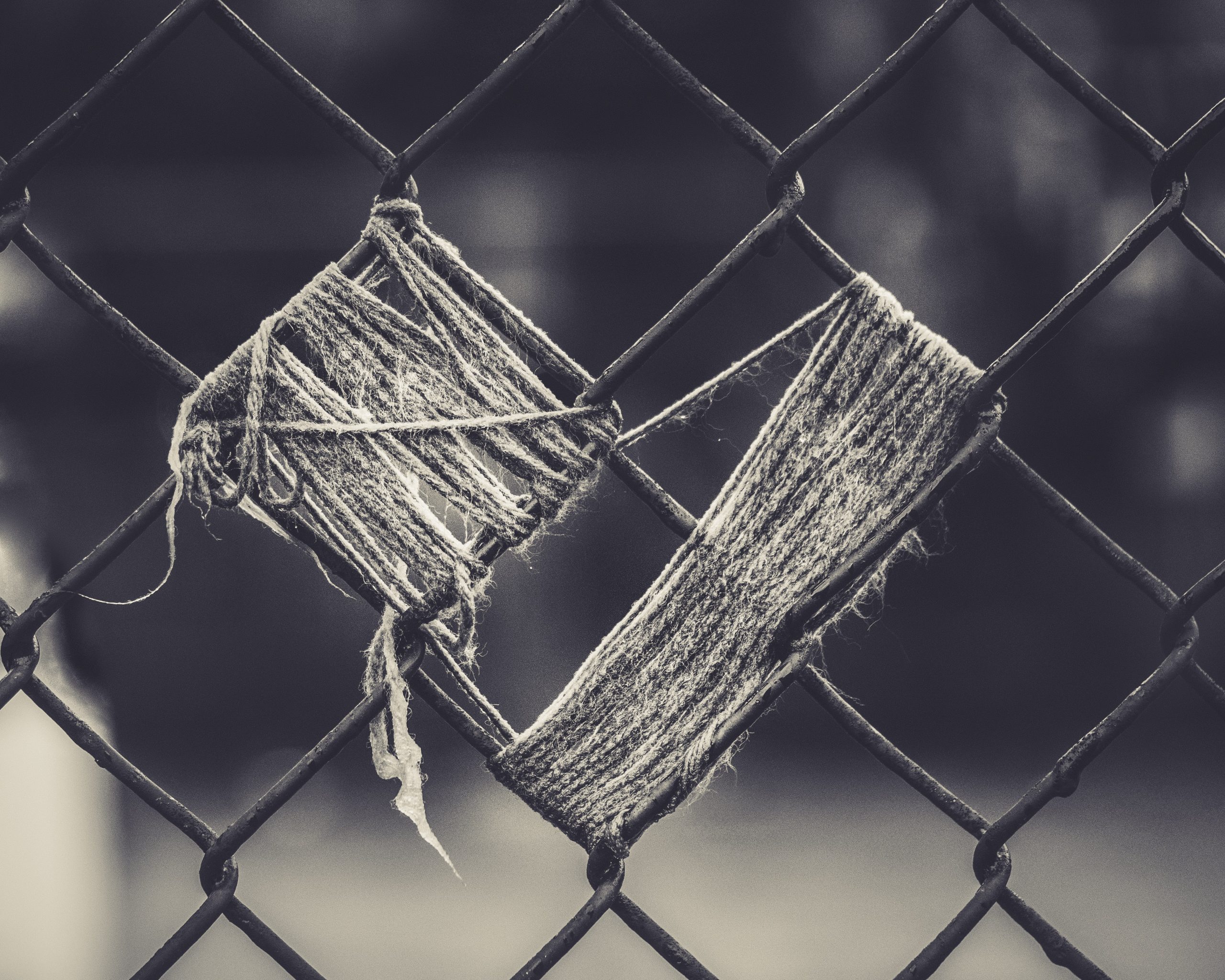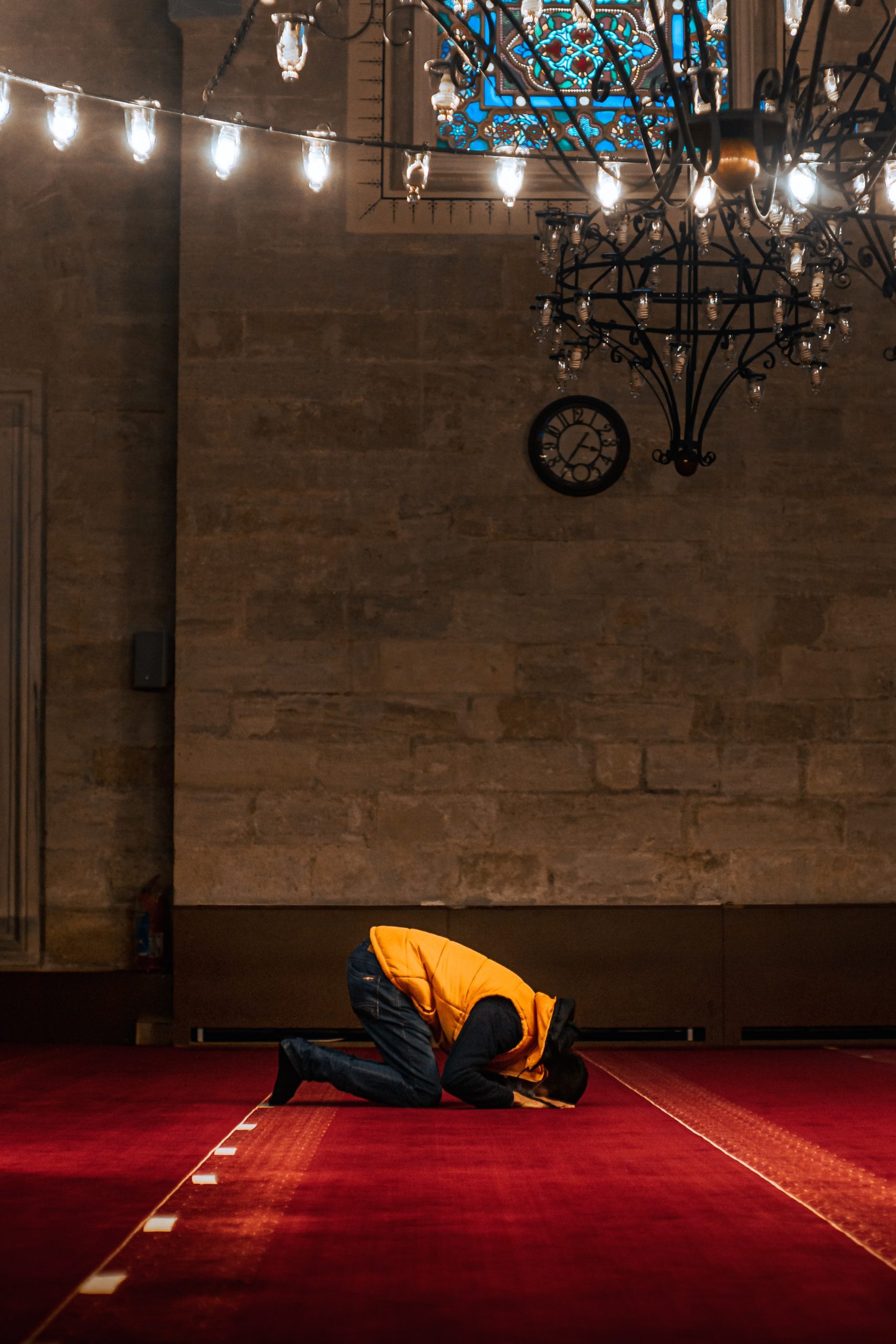#Islam
The 7 Rights Of The Heart
Published

A Muslim’s heart is a vital part of their spiritual health. Learn about why it is so important, what the Prophet [SAW] said about it, and what the 7 rights of the heart are and how to tend to them.
The Importance of a Muslim’s Heart
Writing about the marvels of the human heart (‘aja’ib al-qalb), al-Ghazali states: ‘The honour and excellence of man, by which he outstrips all other creatures, is his ability for knowing God, transcendent is He. It is man’s beauty, perfection and glory in this world, and his provision and store in the world to come. He is prepared for [receiving] such knowledge only via his heart, and not by means of any other of his bodily organs. For it is the heart that knows God, works for God, strives towards God, draws near to God and reveals that which is in the presence of God. In contrast, all the other organs are merely followers, servants and instruments that the heart uses and employs … For it is the heart that is accepted by God when it is free from all except Him; it is veiled from God when it is totally absorbed in other than Him … The heart is that which, if a man knows it, he knows himself, and if he knows himself, he knows his Lord. But it is that which, if he knows it not, he knows not himself, and if he knows not himself, he knows not his Lord … So knowledge of the heart and of the true nature of its traits is the root of religion and the foundation of the path of the seekers.”1Al-Ghazali, Ihya ‘Ulum al-Din (Jeddah: Dar al-Minhaj, 2011), 5:9-11.
Given the above, it is no wonder that the Qur’an says about man’s responsibility to his heart:
Keep supporting MuslimMatters for the sake of Allah
Alhamdulillah, we're at over 850 supporters. Help us get to 900 supporters this month. All it takes is a small gift from a reader like you to keep us going, for just $2 / month.
The Prophet (SAW) has taught us the best of deeds are those that done consistently, even if they are small. Click here to support MuslimMatters with a monthly donation of $2 per month. Set it and collect blessings from Allah (swt) for the khayr you're supporting without thinking about it.
“The day when wealth and sons will benefit not, save he who brings to God a sound heart.” [Surah Ash-Shu`arā’:88-9]
The status and preeminence of the heart (qalb) is also borne out by the following five considerations:
1. The heart is where intentions reside: The Prophet ﷺ stated: “Indeed, actions are by intentions and each person will have that which they intended.”2Al-Bukhari, no.1; Muslim, no.1907. Scholars stipulate: al-niyyah mahalluha al-qalb – ‘Intentions reside in the heart.’ Thus, if the intention of the heart is sound, the act will meet with divine acceptance. If, however, it is corrupt or insincere, the act will be rejected by Allah 

2. It is where the Divine Gaze is focused: God looks at our hearts to see if they have sound intentions and sincerity to Him, and He also looks at our deeds, to see if they conform to the Sunnah of His Prophet ﷺ. A celebrated hadith declares: “Indeed, God doesn’t look at your forms or your appearances, but He looks at your hearts and your actions.”4Muslim, no.2564.
3. It is where the Qur’an, the Divine Word, is understood: One Quranic verse states:
“Will they not meditate on the Qur’an, or are there locks upon their hearts?” [Surah Muhammad:24] Sins and exposing the heart to trials and temptations may seriously diminish the heart’s clarity or understanding. Sufyan al-Thawri 
4. It is where piety (taqwa) is located: The Prophet ﷺ said: “Piety is here, piety is here, piety is here” – pointing to his chest three times.6Muslim, no.2564. The Prophet ﷺ was once quizzed: Who among people are the best? He replied: “Those with a clean heart and a truthful tongue.” They inquired: We understand what a truthful tongue is, but what is a clean heart? To which he ﷺ said: “It is one that is pious and pure, in which there is neither sin, nor rancor, nor jealousy.”7Ibn Majah, no.4462. It was graded sahih by al-Albani, al-Targhib wa’l-Tarhib (Riyadh: Maktabah al-Ma‘arif, 2006), no.2889.
5. It is God’s vessel on earth: In one hadith, the Prophet ﷺ declared: “Indeed God has vessels from the people of the earth, and the vessels of your Lord are the hearts of His righteous servants: the most beloved of them to Him are those which are the gentlest and softest.”8Al-Tabarani, Musnad al-Shamiyyin, no.840; it is hasan. Consult: al-Albani, Silsilat al-Ahadith al-Sahihah (Riyadh: Maktabah al-Ma‘arif, 1988), no.1691. So what we fill these vessels with – faith or disbelief; piety or profanity; submission or transgression; God’s invocation or worldly distractions – is indeed our choice and we alone shall bear the consequence.
The Prophet [SAW] Explains the Condition of the Heart

The 7 Rights of the Heart and How to Fulfill Them
This is why Revelation urges that we each tend to our hearts above all else, and accord them the inalienable rights they were created to have. From the most critical of these rights are:
1. Adorning the heart with faith: A person possesses nothing of greater worth than his heart. And the heart cannot contain anything more cherished by it or more necessary to it than faith (iman); sound beliefs; and internalizing the reality and requirements of la ilaha illa’Llah. For hearts were created to worship and adore Allah 
2. Illuminating it with the Qur’an: O people! There has come to you an exhortation from your Lord, and a healing for what is in the breasts, and a guidance and a mercy for those who believe.
[Surah Yunus:57] So the Qur’an declares itself to be a counsel to heal hearts and cure them of doubts, darkness and anxieties. Its message consoles, reassures and revives hearts mired in desperation, desires and disbelief.
3. Bringing to it tranquility: One hadith informs: “Detachment from the world (zuhd) brings relief to the heart and the body, while desire for [worldly] increase brings worry and anxiety.”14Al-‘Uqayli, al-Du‘afa, no459; al-Tabarani, al-Awsat, no.6256. Examining its various routes of transmission and supporting chains, al-Albani declared the hadith as weak (da‘if). Instead he considered it to be the statement of one of the people of knowledge of the past. Consult: Silsilat al-Ahadith al-Da‘ifah (Riyadh: Maktabah al-Ma‘arif, 1988), no.1291. The hadith does, nonetheless, state a general spiritual truth about the human situation. Despite scientific studies revealing, and continued human experience proving, that an increase in material things, above subsistence living, doesn’t increase our overall happiness, we moderns are obsessed with worldly acquisitions. Whether it be living way beyond our means, racking up huge personal debts, pinning our whole sense of self-esteem on wearing the right brand names, anxious about whether or n0t we’re keeping up with the latest trends – all this has pushed us moderns to the mental brink.15See: Layard, Happiness: Lessons from a New Science (England: Penguin Books, 2004), p.4. Despite the tech and material comforts that now embrace us, ours is a society ridden with depression, angst and discontent; desperately seeking fulfillment in what can never truly fulfill us: materialism/consumerism. In contrast, the Qur’an offers us this simple truth:

4. Nurturing in it tenderness and humility: The Prophet 

5. Guarding it from the poison of sins: Endeavoring to keep our hearts free from sins is the heart’s right over us. For sins stain the heart and poison it. The Qur’an says:
“By no means! That which they have done has veiled their hearts. [Surah Al-Muţaffifīn:14] This veil (rayn) has been explained as: atharu’l-ma‘asi ‘ala’l-qulub – the traces of sins upon the hearts. The following hadith sheds further light on this matter: “Temptations will be presented to the heart, just as a reed mat is interwoven strip by strip. Any heart that soaks it in will have a black stain upon it. Any heart that rejects it will have a white mark on it. Thus hearts will be of two types: one white, like a smooth stone, that will not be harmed by temptations as long as heavens and earth endure. The other, black and corroded, like a jug with cracks, neither recognizing good nor rejecting wrong; rather being overrun by its desires.”19Muslim, no.144
6. Keeping it free from diseases: “The day when wealth and sons will benefit not, save he who brings to God a sound heart.” [Surah Ash-Shu`arā’:88-9] Keeping the heart sound entails guarding it against two types of sickness or diseases: the disease of doubts (amrad al-shubuhat) and that of desires (amrad al-shahawat). About the first: “That He may make what Satan has caste a trial for those in whose heart is a sickness.”
[Surah Al-Haj:53] The second type: Be not soft of speech, lest he in whose heart is a disease aspire to you.
[Surah Al-‘Aĥzāb:32]
7. Praying constantly for the heart’s guidance: This is another essential right (haqq) of our hearts upon us, to pray for its guidance, rectitude and wellbeing, and that it not swerve from faith. This right must never be thought little of, trivialised, or neglected. The Prophet ﷺ would often supplicate: “O Turner of Hearts, turn our hearts to your obedience.”20Muslim, no.2654.
O Lord, cause not our hearts to swerve after You have guided us, and bestow upon us mercy from Your Presence. Assuredly you are the Bestower.
[Surat ‘Āli `Imrān:8]
This article was first published here.
Related reading:
Keep supporting MuslimMatters for the sake of Allah
Alhamdulillah, we're at over 850 supporters. Help us get to 900 supporters this month. All it takes is a small gift from a reader like you to keep us going, for just $2 / month.
The Prophet (SAW) has taught us the best of deeds are those that done consistently, even if they are small. Click here to support MuslimMatters with a monthly donation of $2 per month. Set it and collect blessings from Allah (swt) for the khayr you're supporting without thinking about it.
Abu Aaliyah is the founder of The Jawziyyah Institute, a leading institute for Islamic moderation and contemporary thought in the United Kingdom. Sidi Abu Aaliyah has been in involved in Dawah and Islamic teachings since 1986. He has translated a number of books from the Arabic language into English such as "The Exquisite Pearls". Abu Aaliyah's written works and audio lectures can be found online.


Op-Ed: From Pakistan To Gaza – Why Senator Mushtaq Ahmad Khan Terrifies Power And Zionism

The Sandwich Carers: Navigating The Islamic Obligation Of Eldercare

Far Away [Part 4] – A Safe Place

Why I Can’t Leave Surah Al-Mulk Hanging Every Night

The Muslim Book Awards 2025 Winners

Restoring Balance In An Individualized Society: The Islamic Perspective on Parent-Child Relationships

Faith and Algorithms: From an Ethical Framework for Islamic AI to Practical Application

Far Away [Part 1] – Five Animals

The Limits Of Obedience In Marriage: A Hanafi Legal Perspective

Kuwait Strips Prominent Thinker Tariq Suwaidan Of Citizenship

[Dhul Hijjah Series] Calling Upon the Divine: The Art of Du’a (Part 1)

IOK Ramadan 2025: Four Steps | Sh Zaid Khan

IOK Ramadan 2025: Do Your Best | Sh Zaid Khan

IOK Ramadan 2025: Giving Preference to Others | Sh Zaid Khan

IOK Ramadan 2025: Which Group Are We In? | Sh Zaid Khan
Trending
-
#Islam3 weeks ago
Restoring Balance In An Individualized Society: The Islamic Perspective on Parent-Child Relationships
-
#Current Affairs1 month ago
Ahmed Al-Ahmed And The Meaning Of Courage
-
#Life1 month ago
AI And The Dajjal Consciousness: Why We Need To Value Authentic Islamic Knowledge In An Age Of Convincing Deception
-
#Culture1 month ago
Moonshot [Part 32] – FINAL CHAPTER: A Man On A Mission
















